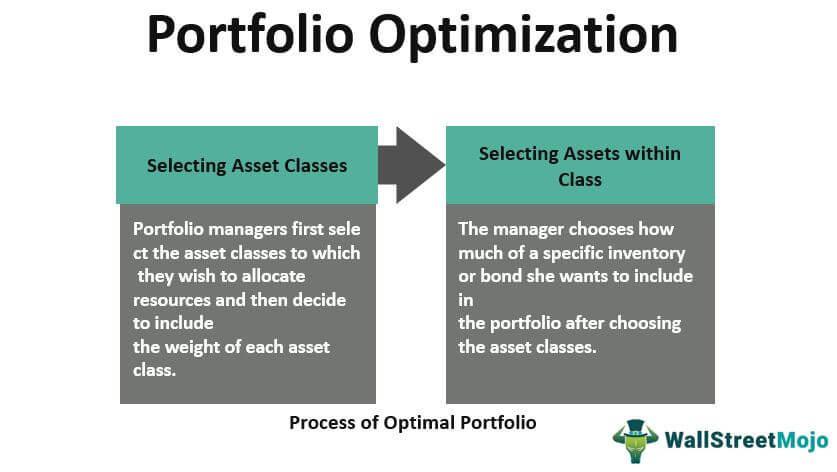
Basically, an asset manager is a financial professional who invests a company's savings, real estate and other assets in the world economy to increase value and minimize risk. These asset managers can work for investment banks, foundations, insurance companies, and insurance companies. They manage portfolios based upon the objectives and needs of their clients.
Asset management is a highly specialized business service. This includes evaluating, buying and selling assets for a company. This is typically done by a team consisting of financial professionals and asset mangers. Some firms specialize only in investing in mutual fund funds, while others are more focused on private sector financing using equity or bonds. Asset managers also determine the best investments for their clients based on their risk appetite. They make sure all assumptions are grounded in sound research. They are also able to predict the asset's performance.
Asset managers may work for banks and insurance companies as well as construction companies or investment firms. They could also work independently as companies that manage assets on behalf of individuals, businesses, or organizations. These firms may take a percentage of profits, or they may bundle other services. While some firms offer only services to corporations, others specialize in serving wealthy individuals.

Some asset management firms are able to buy large amounts of securities in a single office. They can also access more attractive trading commission prices. To save money, they may bundle insurance policies with other services. They may focus on one type of asset, such as passive investing or value investment. They may invest in stocks, commodities, real estate, bonds and other investments.
Sometimes, an asset manager might also be registered as a financial advisor. They have completed all necessary training and courses to become a financial expert. They may also be able to work in senior financial roles. They also have higher salaries as asset managers. A bachelor's or masters degree in accounting, finance or business may be an option for those who are looking to move up in the financial ranks.
Asset managers must have a bachelor's and at least two years of experience in portfolio management. They must also have a good grasp of financial concepts, as well as the skills needed to make good financial decisions. They must also possess good interpersonal skills. They must keep a positive relationship between clients and tenants. They must also make strategic decisions regarding the tenants that they choose. They must stay ahead of lease expirations and structure their leases in a strategic manner.
Asset management is a growing industry, as more and more clients want personal service. These firms can help clients increase wealth over time and may also take a share of the profits. Depending on their portfolios, investment fees may vary from a few basis points to a percentage of profits.

Some asset management firms are experts in managing money for retirement plans. Some asset management companies specialize in mutual funds. Others work with institutional investors and hedge funds.
FAQ
How much debt is considered excessive?
There is no such thing as too much cash. You will eventually run out money if you spend more than your income. Because savings take time to grow, it is best to limit your spending. You should cut back on spending if you feel you have run out of cash.
But how much is too much? There is no universal number. However, the rule of thumb is that you should live within 10%. You'll never go broke, even after years and years of saving.
This means that you shouldn't spend more money than $10,000 a year if your income is $10,000. If you make $20,000 per year, you shouldn't spend more then $2,000 each month. Spend no more than $5,000 a month if you have $50,000.
The key here is to pay off debts as quickly as possible. This includes credit card bills, student loans, car payments, etc. After these debts are paid, you will have more money to save.
It's best to think about whether you are going to invest any of the surplus income. If you decide to put your money toward stocks or bonds, you could lose money if the stock market falls. However, if the money is put into savings accounts, it will compound over time.
Let's suppose, for instance, that you put aside $100 every week to save. This would add up over five years to $500. At the end of six years, you'd have $1,000 saved. In eight years you would have almost $3,000 saved in the bank. You'd have close to $13,000 saved by the time you hit ten years.
After fifteen years, your savings account will have $40,000 left. That's pretty impressive. However, if you had invested that same amount in the stock market during the same period, you'd have earned interest on your money along the way. You'd have more than $57,000 instead of $40,000
You need to be able to manage your finances well. You might end up with more money than you expected.
What is personal finance?
Personal finance is about managing your own money to achieve your goals at home and work. This means understanding where your money goes and what you can afford. And, it also requires balancing the needs of your wants against your financial goals.
Learning these skills will make you financially independent. You won't need to rely on anyone else for your needs. You're free from worrying about paying rent, utilities, and other bills every month.
And learning how to manage your money doesn't just help you get ahead. It will make you happier. When you feel good about your finances, you tend to be less stressed, get promoted faster, and enjoy life more.
What does personal finance matter to you? Everyone does! Personal finance is one of the most popular topics on the Internet today. Google Trends shows that searches for "personal finances" have increased by 1,600% in the past four years.
People now use smartphones to track their money, compare prices and create wealth. These people read blogs like this one and watch YouTube videos about personal finance. They also listen to podcasts on investing.
In fact, according to Bankrate.com, Americans spend an average of four hours a day watching TV, listening to music, playing video games, surfing the Web, reading books, and talking with friends. There are only two hours each day that can be used to do all the important things.
If you are able to master personal finance, you will be able make the most of it.
How do rich people make passive income?
There are two options for making money online. One is to create great products/services that people love. This is called earning money.
The second is to find a method to give value to others while not spending too much time creating products. This is known as "passive income".
Let's say that you own an app business. Your job is development apps. You decide to make them available for free, instead of selling them to users. That's a great business model because now you don't depend on paying users. Instead, you rely on advertising revenue.
To help you pay your bills while you build your business, you may also be able to charge customers monthly.
This is how most successful internet entrepreneurs earn money today. They give value to others rather than making stuff.
What is the easiest passive source of income?
There are many online ways to make money. Many of these methods require more work and time than you might be able to spare. How do you make extra cash easy?
You need to find what you love. You can then monetize your passion.
For example, let's say you enjoy creating blog posts. Start a blog where you share helpful information on topics related to your niche. Then, when readers click on links within those articles, sign them up for emails or follow you on social media sites.
This is called affiliate marketing. You can find plenty of resources online to help you start. Here's a collection of 101 affiliate marketing tips & resources.
Another option is to start a blog. This time, you'll need a topic to teach about. After you've created your website, you can start offering ebooks and courses to make money.
While there are many options for making money online, the most effective ones are the easiest. You can make money online by building websites and blogs that offer useful information.
Once your website is built, you can promote it via social media sites such as Facebook, Twitter, LinkedIn and Pinterest. This is content marketing. It's an excellent way to bring traffic back to your website.
What side hustles will be the most profitable in 2022
You can make money by creating value for someone else. If you do this well the money will follow.
Although you may not be aware of it, you have been creating value from day one. When you were little, you took your mommy's breastmilk and it gave you life. Learning to walk gave you a better life.
You will always make more if your efforts are to be a positive influence on those around you. The truth is that the more you give, you will receive more.
Value creation is a powerful force that everyone uses every day without even knowing it. You are creating value whether you cook dinner, drive your kids to school, take out the trash, or just pay the bills.
There are actually nearly 7 billion people living on Earth today. That means that each person is creating a staggering amount of value daily. Even if you only create $1 worth of value per hour, you'd be creating $7 million dollars a year.
That means that if you could find ten ways to add $100 to someone's life per week, you'd earn an extra $700,000 a year. This is a lot more than what you earn working full-time.
Let's say that you wanted double that amount. Let's assume you discovered 20 ways to make $200 more per month for someone. Not only would you earn another $14.4 million dollars annually, you'd also become incredibly wealthy.
Every day offers millions of opportunities to add value. This includes selling products, services, ideas, and information.
Even though we spend much of our time focused on jobs, careers, and income streams, these are merely tools that help us accomplish our goals. Helping others to achieve their goals is the ultimate goal.
If you want to get ahead, then focus on creating value. Use my guide How to create value and get paid for it.
What is the distinction between passive income, and active income.
Passive income means that you can make money with little effort. Active income requires hardwork and effort.
You create value for another person and earn active income. When you earn money because you provide a service or product that someone wants. This could include selling products online or creating ebooks.
Passive income is great as it allows you more time to do important things while still making money. Most people don't want to work for themselves. So they choose to invest time and energy into earning passive income.
Problem is, passive income won't last forever. If you hold off too long in generating passive income, you may run out of cash.
If you spend too long trying to make passive income, you run the risk that your efforts will burn out. It's better to get started now than later. If you wait too long to begin building passive income you will likely miss out on potential opportunities to maximize earnings.
There are three types of passive income streams:
-
There are several options available for business owners: you can start a company, buy a franchise and become a freelancer. Or rent out your property.
-
Investments - These include stocks, bonds and mutual funds as well ETFs.
-
Real Estate: This covers buying land, renting out properties, flipping houses and investing into commercial real estate.
Statistics
- Mortgage rates hit 7.08%, Freddie Mac says Most Popular (marketwatch.com)
- 4 in 5 Americans (80%) say they put off financial decisions, and 35% of those delaying those decisions say it's because they feel overwhelmed at the thought of them. (nerdwallet.com)
- As mortgage rates dip below 7%, ‘millennials should jump at a 6% mortgage like bears grabbing for honey' New homeowners and renters bear the brunt of October inflation — they're cutting back on eating out, entertainment and vacations to beat rising costs (marketwatch.com)
- These websites say they will pay you up to 92% of the card's value. (nerdwallet.com)
- Etsy boasted about 96 million active buyers and grossed over $13.5 billion in merchandise sales in 2021, according to data from Statista. (nerdwallet.com)
External Links
How To
How to Make Money online
Making money online is very different today from 10 years ago. How you invest your funds is changing as well. Although there are many options for passive income, not all require large upfront investments. Some methods are easier than other. There are a few things to consider before you invest your hard-earned money into any online business.
-
Find out who you are as an investor. If you're looking to make quick bucks, you might find yourself attracted to programs like PTC sites (Pay per click), where you get paid for simply clicking ads. If you're looking for long-term earning potential, affiliate marketing might be a good option.
-
Do your research. Do your research before you sign up for any program. Review, testimonials and past performance records are all good places to start. You don't want your time or energy wasted only to discover that the product doesn’t work.
-
Start small. Do not jump into a large project. Instead, build something small first. This will allow you to learn the ropes and help you decide if this business is for you. When you feel confident, expand your efforts and take on bigger projects.
-
Get started now! It's never too late to start making money online. Even if you've been working full-time for years, you still have plenty of time left to build a solid portfolio of profitable niche websites. All you need to get started is an idea and some hard work. Take action now!